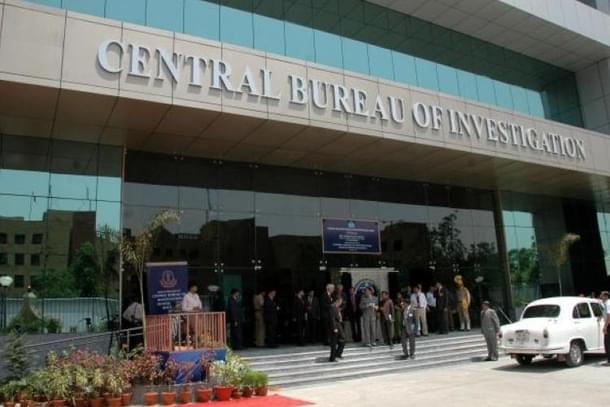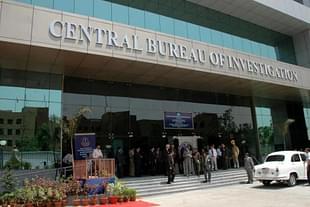Ideas
CBI Isn’t The Answer: India’s Focus Should Be To Get Rich First Before Tackling Corruption
R Jagannathan
May 18, 2021, 12:27 PM | Updated 12:27 PM IST
Save & read from anywhere!
Bookmark stories for easy access on any device or the Swarajya app.


The arrest of four Trinamool Congress (TMC) politicians, including two ministers and one MLA, by the Central Bureau of Investigation (CBI) yesterday (17 May), is going to be counter-productive, both politically and economically.
Regardless of whether you believe it is vendetta politics instigated by Bharatiya Janata Party (BJP), or just a routine matter of custodial interrogation in what is called the “Narada scam”, the fallout for our polity can only be negative.
We saw ugly scenes outside the CBI offices in Kolkata when, from the Chief Minister down to Trinamool party workers, all were trying to intimidate the investigating agency. The net result was bail, followed by a rescinding of the bail by the Calcutta High Court. The four politicians continue to remain in CBI custody, but nothing much can come out of it.
The CBI’s record in securing convictions in high-profile political corruption cases has been dismal, and limited to an occasional O P Chautala or a Lalu Prasad or V K Sasikala.
Even in the 2G scam, all politicians went scot-free, and this even after the Supreme Court practically confirmed wrongdoing by cancelling all 2G licences.
Where convictions have been ensured, they were probably the result of a favourable alignment of stars, where a good judge, aided by good evidence and minimal political obstruction delivered verdicts of guilty.
One can safely say that in the Narada scam, where a sting operation showed many Trinamool politicians (including some BJP crossovers) accepting cash bribes, few politicians will end up in jail after a conviction in the foreseeable future.
The arrests will achieve nothing more than worsening already frayed political relationships between Centre and states — something that is entirely avoidable when the country faces a pandemic that needs more trust between political parties.
But even beyond the pandemic, we have to ask ourselves a more basic question: should we be wasting so many resources in trying to catch the corrupt when our focus ought to be on the main prize? This prize is making India richer, or at least making it a high middle income country as soon as possible, which is when corruption actually starts becoming a moral question for citizens.
Even though this sounds controversial and amoral, the fact is corruption is not an issue for the poor as long as they get some basic things for themselves.
As the late Samuel Huntington said in his book, Political Order In Changing Societies, the rich are willing to accept economic corruption in order to obtain policy favours; the poor are willing to overlook political corruption to obtain economic benefits.
It is only after we cross the threshold of poverty by a large margin that people start wondering about the moral question. At survival levels of existence, corruption is of marginal interest.
More importantly, among the three main pillars of any capitalist democracy — the state, markets, and society — it is society that is strongest in India. (In the west, state and markets are stronger than society).
The Indian state is weak, and cannot get its act together without draconian laws, and the markets are somewhere in between. Some work, some don’t. And where they do work, there is still a political inclination to meddle with them in order to deliver economic favours to businessmen for a price.
When the balance of power favours society, you cannot stop corruption, for people will stick by their corrupt kinsmen out of a sense of solidarity. No corrupt politician has ever lost an election purely due to his sticky fingers syndrome.
Conviction in corruption cases did not diminish the popularity of a Jayalalithaa or a Lalu Prasad or a Chautala. Nor will it dent the image of Mamata Banerjee if some of her partymen actually end up being convicted (fat chance) for the myriad scams in West Bengal, or that of Jagan Mohan Reddy for the cases he is involved in in Andhra Pradesh.
There is also another reason why an obsession with corruption is not helping us. Whether you like it or not, black money and tax-evaded cash has positive economic outcomes even if the money is merely distributed as election bribes to sections of voters. This illegal cash keeps many families out of poverty or as part of the consuming classes. It boosts demand — something that is missing right now.
As long as the linkage between tax-avoided incomes and tax-paid incomes remains strong — for example, the movement in and out of Indian stocks of hawala money and foreign inflows — companies have more options for emerging from the Covid crisis as black money can be used to prop up flailing businesses covertly. The problem comes when you stigmatise black money too much.
There are three takeouts from this.
One, corruption will not go away unless it is dealt with systemically, by gradually reducing opportunities for discretionary decision-making, and that is inevitably a long-term project. A frontal attack on corruption, especially if it politically led, will fail.
Two, trying to deal with corruption by excessive tax pressure or through a clampdown on avenues for avoiding taxes has negative implications for growth and informal jobs.
Three, corruption cannot be eliminated unless we shift from a situation of material shortages, anti-business mindsets and demands for redistribution of existing wealth to one of abundance and wealth creation. None of this can happen if the state itself becomes a party to rent-seeking behaviour, as we have seen with the high prices charged for spectrum or coal blocks.
Leaving something on the table for businesses to make money has to be part of the thought process in governments. Else, we are only going to get licence raj, shortages, and more corruption. This applies whether we are talking about spectrum or vaccines to deal with Covid. If vaccine makers cannot make reasonable profits, they will have no incentive to end the shortages bedevilling our vaccination programmes currently.
When it comes to the CBI, it lacks credibility as a non-partisan investigative outfit. It cannot deliver on its mandate in its current form.
Jagannathan is former Editorial Director, Swarajya. He tweets at @TheJaggi.





